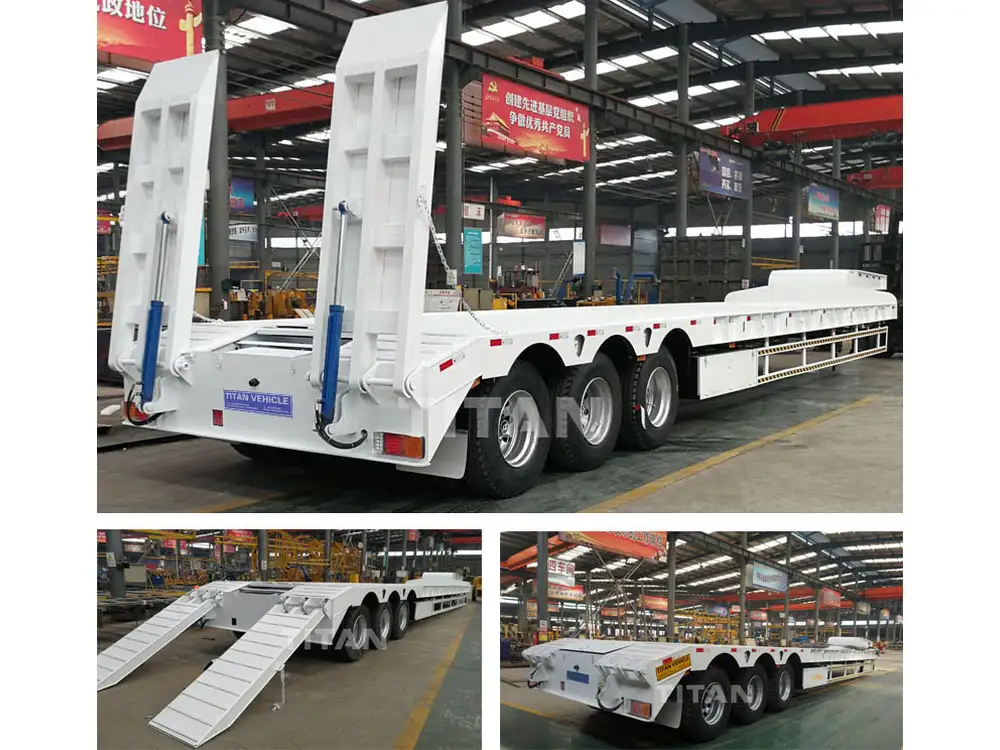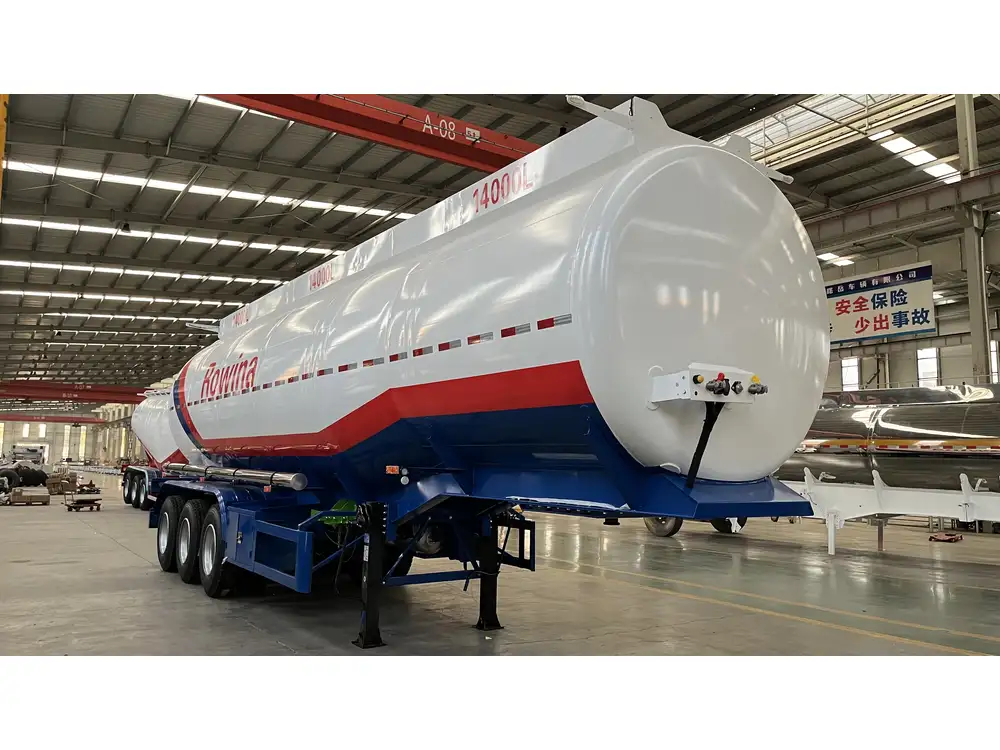When it comes to the construction and transportation industries, understanding the engineering and function behind various equipment is essential. One such crucial component is the dump truck trailer hitch. A common question that arises among operators, manufacturers, and enthusiasts alike is: “Why are dump truck trailer hitches so long?” In this article, we will explore the factors influencing hitch design, their implications on performance and safety, and the broader operational context in which these hitches function.
Understanding Dump Truck Trailer Hitches
1. Definition and Functionality
At its core, a dump truck trailer hitch serves as a critical connector between the truck and the trailer, enabling the transportation of heavy loads. The hitch must support the weight of the cargo and endure various dynamic forces during transportation, including acceleration, braking, and maneuvering.

2. Types of Dump Truck Trailer Hitches
Fixed Hitches: This type does not allow for any articulation and is typically longer to provide maximum stability.
Articulating Hitches: These offer greater flexibility and are often used in off-road conditions. However, their design may still lead to a longer setup when fitted to large trucks.
Gooseneck Hitches: Known for their ability to tow heavier loads, these hitches elevate the connection point which aids in maneuverability but can increase the overall length.
Why Does Length Matter?
The length of the hitch can significantly affect the truck’s stability, cargo capacity, and maneuverability. A longer hitch enhances line integrity and load distribution, reducing the risk of swaying and improving safety while transporting heavy materials.
Factors Influencing Hitch Length

1. Load Distribution
Stability and Center of Gravity
Longer hitches help in distributing the weight of the trailer more evenly. A well-distributed load decreases the chances of tipping and increases overall vehicle stability. If you’re towing a heavy dump trailer, a longer hitch allows the truck’s frame to carry more of the load’s weight, which keeps the center of gravity low and balanced.
2. Enhanced Maneuverability

Turning Radius Considerations
When navigating tight spaces, the length of the hitch can offer better control during turns. The extended length influences how the trailer tracks through corners. Specifically, longer hitches facilitate smoother cornering by providing more distance between the truck and the trailer’s pivot point, reducing jackknifing risks.
3. Attachment Compatibility
Universal Fit Across Equipment
The industry standard for dump truck hitches often dictates a longer design to ensure compatibility with various trailer sizes and types. A long hitch can be better suited for connecting both lighter and heavier-duty trailers without requiring multiple different attachments, streamlining operations.

Structural Considerations
1. Material Strength
The materials used in constructing hitch components play a vital role in longevity and reliability. High-quality steel is often utilized for hitches, given its strength and durability. However, the longer the hitch, the more attention must be paid to its cross-sections and potential weak points to avoid structural failure.
2. Design Complexity
A longer hitch typically requires more intricate designs to maintain strength while optimizing weight. Engineers must account for torque distributions and stresses incurred during towing operations to create a durable hitch that conforms to safety regulations.

3. Safety Regulations and Standards
The longer length of a dump truck trailer hitch often aligns with rigorous safety standards. Regulatory bodies may specify extra length to ensure that trailers maintain adequate distance from the towing vehicle, reducing the risk of accidents. For example, the Federal Highway Administration has standards that include restrictions on the extension of hitches beyond certain limits.
Common Myths About Hitch Length
Myth 1: Longer Hitches Are Always Better
Contrary to popular belief, longer hitches aren’t always advantageous. An excessively long hitch can create difficulties in parking and may cause more wear on both the truck and trailer due to increased angle stresses.

Myth 2: Hitch Length Affects Engine Performance
While hitch length does not inherently affect engine performance, it can indirectly influence factors such as fuel efficiency based on how the trailer’s weight is distributed and how the vehicle handles the load during transport.
Myth 3: All Dump Trailer Hitches Are the Same Length
This is a misconception. In reality, hitches can vary significantly in size and design based on manufacturer specifications and intended use. Customization options are widespread, allowing operators to select a hitch that best meets their operational requirements.
Practical Considerations for Operators

1. Choosing the Right Hitch
When selecting a hitch, it’s important to match the hitch size and type with the specific needs of the trailer being used. Factors like load type, frequency of use, and terrain conditions should influence decision-making.
2. Proper Maintenance
Routine inspections and maintenance of the hitch and its components are crucial. Regularly check for signs of wear, corrosion, or fatigue, especially for longer hitches that bear the brunt of dynamic forces during use.
3. Training and Awareness
Ensuring that all operators are well-trained in the intricacies of dump truck hitches is essential. Knowledge regarding safe connection practices, weight distribution, and hitch maintenance prolongs the equipment’s life and enhances safety on the job site.

Conclusion: The Bigger Picture
The length of dump truck trailer hitches is a product of multifaceted engineering considerations aimed at enhancing safety, stability, and maneuverability. Length plays a critical role in load distribution, compatibility, and overall truck performance. As the industry continues to evolve with advancements in materials and technology, an ongoing dialogue will be necessary to refine hitch design and application, aiming for enhanced performance in every transport scenario.
Key Takeaways
- Safety First: Understanding the implications of hitch length on safety and stability is essential for operators.
- Material Matters: The right materials can influence the durability and effectiveness of bump truck hitches significantly.
- Adaptability Is Key: Choosing the correct hitch for specific trailers ensures compatibility and broadens operational efficiency.
In conclusion, taking into account all significant aspects of dump truck trailer hitches and their lengths can lead to better decision-making and operational effectiveness in the field. Always prioritize safety, compatibility, and maintenance to maximize the performance and longevity of your equipment. Future innovations will continue to enrich this vital sector, ensuring that as demands grow, so too do the standards of safety and efficiency.



